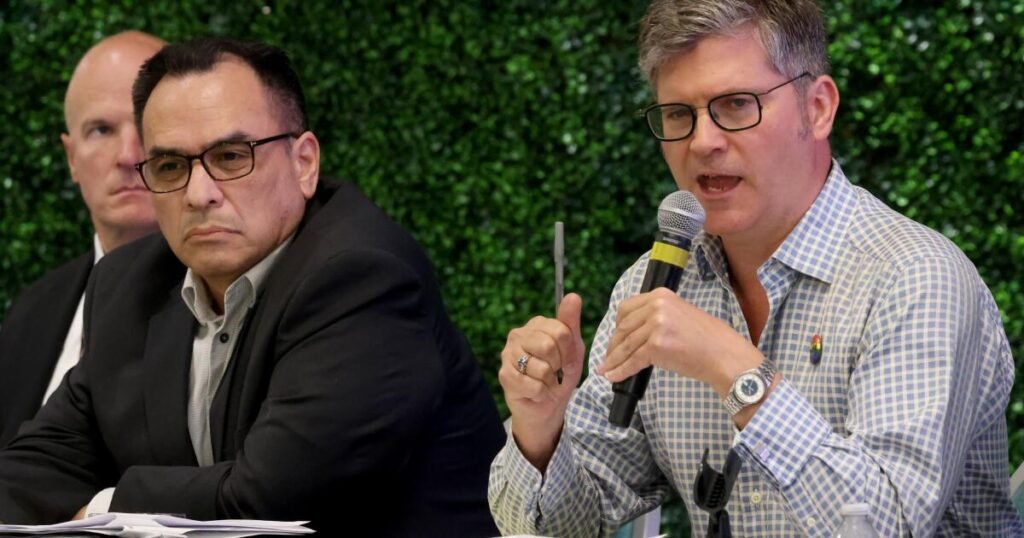Concerns Raised Over New Communication Policy in LA County
In LA County, oversight officers are now required to obtain permission before communicating with the media and the public, which has raised alarm among civil rights advocates.
Recently implemented policies have drawn scrutiny for potentially restricting communication rights among local government members. These changes, announced on September 11, mandate that various forms of communication—including press releases, official statements, social media posts, and direct outreach to the Board of Supervisors (BOS)—must be reviewed and approved by higher authorities before they can be shared.
The stated goal of this policy is to ensure that messaging aligns with the county’s priorities while maintaining a unified public voice and protecting sensitive relationships. However, some critics view it as a concerning shift towards limiting open dialogue.
Eric Miller, part of the Civil Brands Committee monitoring LA County Jails, expressed his worries as a citizen, fearing that this policy would hinder his ability to communicate with the media in his capacity as an inspector.
Michael Cup, the communication manager for the Executive Office of the Board of Supervisors, shared that the policy was drafted shortly after he assumed his role in July. He mentioned that, prior to this, there was a lack of communication guidance for the committee and watchdog groups, which often relied on inconsistent practices.
It’s increasingly common for government agencies to restrict employee communications with the press. Yet, LA County supervisors were previously afforded more freedom in expressing their views. This has been particularly relevant given the ongoing discussions about issues within the sheriff’s department, such as deputy gangs and problematic prison conditions.
Some observers have questioned the timing of this policy, especially following a series of negative headlines, scandals, and significant legal payouts related to law enforcement misconduct.
Meanwhile, Robert Bonner, a long-standing committee chairman, voiced his frustrations regarding transparency and communication. Earlier this year, former chair Sean Kennedy stepped down after a clash with county attorneys, raising concerns about oversight independence.
California Attorney General Rob Bonta has also announced a lawsuit against LA County and the Sheriff’s Office, citing a “humanitarian crisis” leading to increased prison deaths. In response to the new communications policy, he remarked that it would enhance dialogue between watchdog groups and the public.
However, Peter Eliasberg from the ACLU expressed concern, suggesting the policy might inhibit the oversight committee’s ability to communicate effectively about serious issues, including the appalling conditions reported in county jails.
Some current and former supervisors remain unclear about the repercussions for non-compliance with the new policy. Cup emphasized that compliance aims for alignment rather than punishment.
At a recent committee meeting, Chair Hans Johnson criticized the policy as reckless and detrimental to the voices within the oversight community. He characterized it as a troubling attempt to stifle their efforts, asserting that they would not be silenced.







